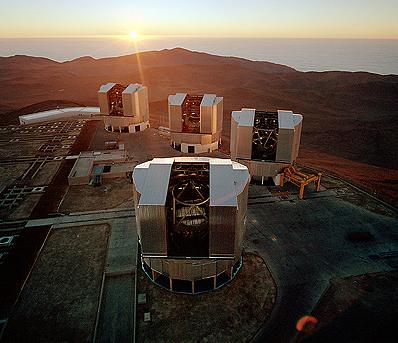What is Astronomy?
The word `astronomy' comes from the Greek roots `astron', meaning `star', and `nomos', meaning `law'. Although astronomy, as we use the term today, includes the study of stars, it also includes the study of other celestial objects. Note, this is quite different from the field of `astrology', which proposes the position of the stars and planets has influence on human affairs and terrestrial events.
 Astronomy is the science which studies:
Astronomy is the science which studies:
- comets
- asteroids
- moons
- planets
- stars
- clusters of stars
- galaxies
- clusters of galaxies
- the Universe as a whole
You can take a whole year of Astronomy!
For this course, Fall Quarter, we will study:
-
Motions in the sky, phases of the Moon, history of astronomy, light and telescopes,
planets, moons, comets, asteroids, meteors
in our solar system, and planets in other solar systems.
For the Winter Quarter, we will study:
- The sun, stars, stellar evolution, star death, white dwarfs, neutron stars, black
holes, our Milky Way galaxy, other galaxies, clusters of galaxies, and cosmology (the
formation, evolution and predicted end of our universe).
For the Spring Quarter, we will study:
-
The formation of life on Earth, the search for life on Mars, ways in which life
might form else where and how it might survive, solar systems beyond our own and
ways to search for life on those planets, and the SETI project.